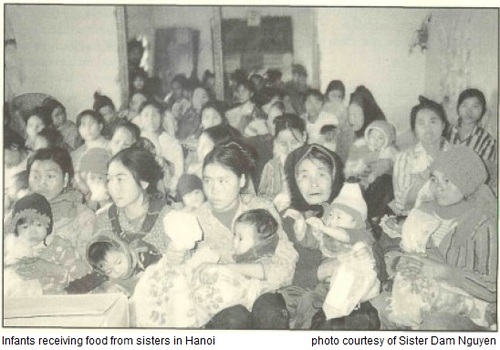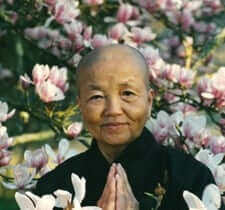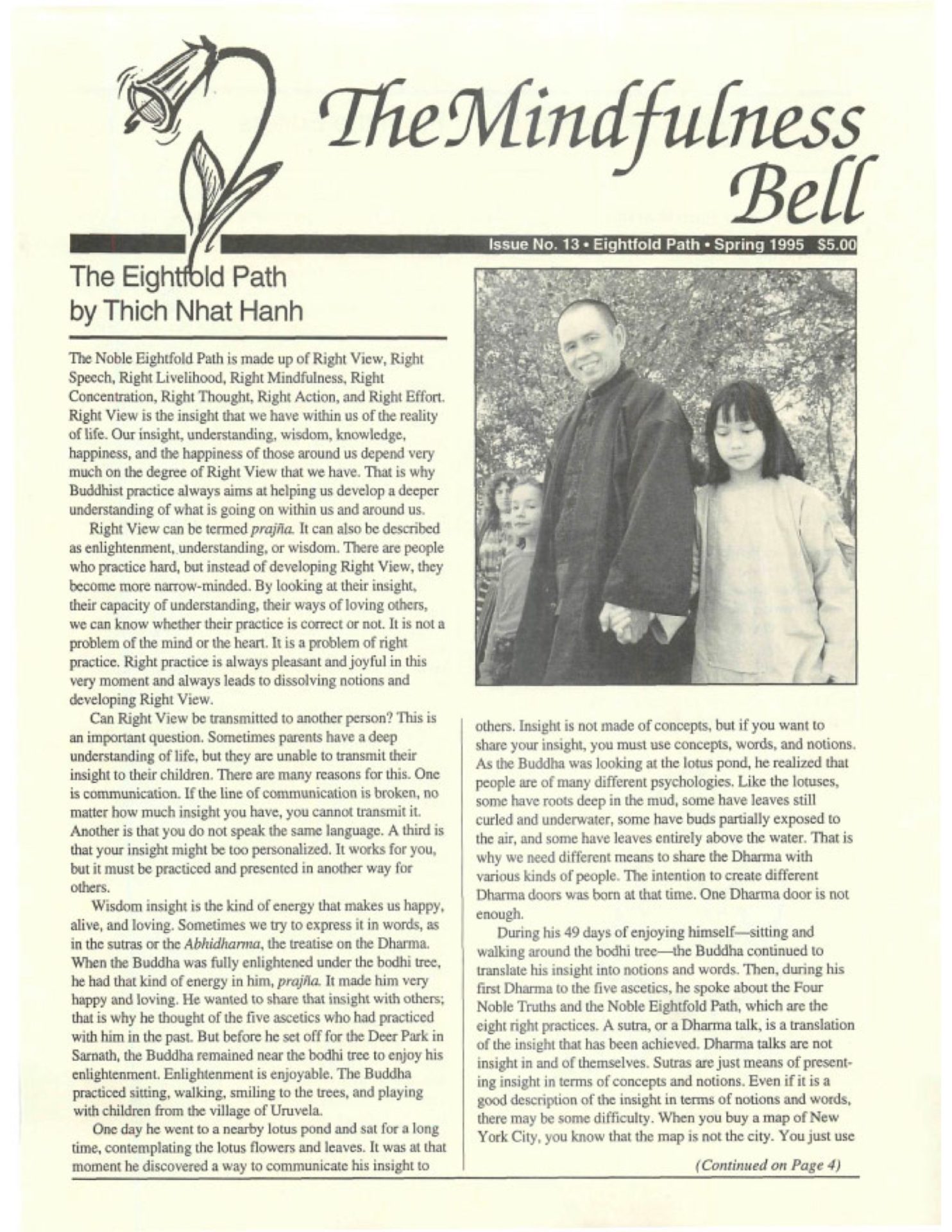By Sister Chan Khong in March 1995
Medical Care
The medical teams in the Thua Thien and Quang Tri areas have made regular visits of up to 15 days per month checking up on the health of people in each village and hamlet. The Saigon team has been very effective during the last eight months visiting and helping many villages—Binh Hoa, Nam Binh Bac, Binh Thanh in Due Hue district Long An— where there is no medical care.
By Sister Chan Khong in March 1995
Medical Care
The medical teams in the Thua Thien and Quang Tri areas have made regular visits of up to 15 days per month checking up on the health of people in each village and hamlet. The Saigon team has been very effective during the last eight months visiting and helping many villages—Binh Hoa, Nam Binh Bac, Binh Thanh in Due Hue district Long An— where there is no medical care. These villages were flooded from mid-September to mid-November. All houses were destroyed, twelve persons were killed, and all crops were carried away by the water. Diarrhea, dysentery, and malaria were spread widely. The work of the physicians is pro-bono, but they spend $350 each visit for medicine and transportation.
The Hanoi team, headed by Thich Chon Phuong, has been giving support to lepers and their families. They also visit destitute sick people who have not means to go to the city for medical care.
Residential Schools
We continue our work to support hundreds of school classes in several poor mountainous villages near the Ho Chi Minh Trail, Thua Thien, Quang Tri, Quang Ngai, and remote areas under the care of the Saigon Sangha—Baria, Xa Bang, Dong Nai jungle area—as well as Cu Chi and Suoi Nghe.
Feeding Hungry Children
The support for feeding children in residential school in Dieu Giac, Quang Ngai, Luong Mai, Loc Tri, Loc Hoa, Quang Tri, Ha Trung, and An Cuu continues as well.
Self-Supporting Villages
Our seven well-trained social workers—Le Van Dinh, Le Thuc Quang, Hoang Vien, Nguyen Chi Tri, Le A, Le Ba Vinh, and Nguyen thi Cho—have gone to seven of the poorest villages in Thua Thien and Quang Tri provinces to improve the lifestyle of the peasants to help them be selfsupporting in the future.
In Luong Mai Village, peasants, inspired by the presence of our workers, have built a school and a nursery day-care center out of bamboo and palm leaves for their children. In the spirit of the School of Youth for Social Service, to encourage the villagers' participation, we only pay the salaries of five of the six school teachers and the salaries for two of the four workers who care for the toddlers.
Local people will prepare a medicinal garden of herbal medicinal plants. They may receive a gift of $500 from us to improve the storage of herbal medicine. Our workers train people to use herbal medicine to heal themselves. For the diseases which need Western medicine, teams of physicians may come every month to improve the health conditions of the village.
Dinh, our School of Youth for Social Service worker, has set up two small workshops—one for the manufacturing of incense sticks, and one for the production of miso (fermented soybeans). Two rooms have been built to start a workshop for the production of grass mats. So far, they have spent $1, 800 instead of the $3, 000 planned for these projects.
In Loc Hoa Village/Thua Thien, we help the five day classes set up by the local people several years ago but which have been dysfunctional because the school teachers were too poorly paid ($2.50 per month!). We added $12 per month for the school teachers' salaries. There was only one class in good shape set up by the local authority of Hamlet 3. To support the other four classes, we organized a meeting of the local people to stimulate their cooperation in giving better support to the school teachers. Now these classes are functioning well.
We also started two night classes for children who could not attend the day classes because they needed to work during the day to help their parents.
Our mobile medical team visits Loc Hoa weekly to help sick persons.

The main work has been the improvements of the roads and bridges in this remote village backed by thickly forested mountains. People live in five groups separated by a large river and two creeks. We built one bridge in July, one in October, and one in December, 1994, to connect the five groups of people in this village.
We also tried to organize Days of Mindfulness for school teachers and local delegates to discuss the improvements of this village together.
The villages of Ha Trung, Trung An, and Tra Loc are in Quang Tri Province, the area separating North and South Vietnam, a part of Vietnam where people suffered the most during the Vietnam War. It was here that guerrillas from the north infiltrated the south via the Ho Chi Minh Trail. The main national road between Quang Tri and Thua Thien was called "the boulevard of horror." It was here that three villages—Ha Trung, Trung An, and Tra Loc—were bombarded several times. After the fourth bombardment of Tra Loc, the SYSS workers rebuilt it again because they wanted to show the war victims that they were not alone in their misery. Thay Nhat Hanh once pointed to the children in photographs from Ha Trung and Tra Loc Villages, saying, "Look at these children. All those people who were killed during the war have been reborn in these children."
We were just able to buy a new house to make a school home for toddlers to stay all day and be given lunch. The school should be ready this month. Forty-eight toddlers are waiting to attend.
So far, the villages of Ha Trung, Tra Loc, and Trung An have not been very successfully helped because the social workers there are not very skillful (like the Hue social workers). No other work besides education has been done there.
We are preparing to set up an herbal medicinal garden in the front yard of the school site. Our workers will train people to use herbal medicine to heal themselves. The mobile medical team from Quang Tri City helps those with diseases that require Western medicine.
A workshop for the production of cypress mats will be set up.
I would like to help. Enclosed is my contribution for: . Medical Care . Residential Schools . Feeding Hungry Children . Self-Supporting Villages . Human Rights Work
Name: ____________________ Address: __________________ Please make checks payable to the Community of Mindful Living, P.O. Box 7355, Berkeley, CA 94707, earmarked "Working Together for Rejuvenation in Vietnam" (WTRV).


